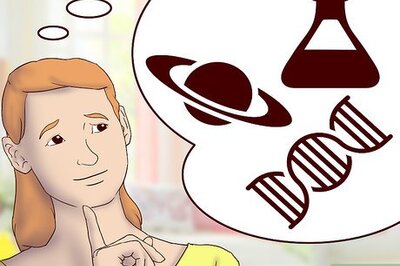
views
Washington: Scientists have now found the secret behind why some people gain weight even if they eat less. It is all the handiwork of a gene in the brain known as CPT1c, which the brain needs to manage weight.
According to the researchers, the CPT1c gene protects against weight gain caused by a high-fat diet.
In an experiment on mice scientists found that the engineered mice lacking the CPT1c gene gain more weight than their littermates carrying normal copies of the gene.
"We think our study reveals a direct weight management pathway," says Michael Wolfgang, Ph.D., a postdoctoral fellow in the Department of Biological Chemistry at The Johns Hopkins University School of Medicine and an author of the report.
"CPT1c seems to allow the body to respond immediately to the level of nutrients and fat in the bloodstream,” he adds.
Hopeful that the discovery has broad implications for understanding the genetic underpinnings of obesity and weight management, the Hopkins investigators say the work affirms the central role of the brain in managing hunger and satiety.
It also offers up new targets for drugs that manipulate CPT1c. But none have been developed so far, says Wolfgang.
Further analysis revealed that when deprived of food for four hours prior to feeding with standard laboratory mouse chow, the knockout mutant mice ate about 25 per cent less food than their normal siblings.
Therefore, the researchers concluded, CPT1c must play a role in feeding behavior and appetite control.
And when fed a high-fat diet (mouse chow laced with lard) for 10 weeks, mice lacking CPT1c still ate less than their normal littermates, but they were much heavier.
What scientists already know about the regulation of body weight helps explain why the absence of CPT1c may have its seemingly paradoxical effect.
"How do you know when to stop eating?" asks M. Daniel Lane, Ph.D., senior author of the study and a professor of biological chemistry in the Institute for Basic Biomedical Sciences at Hopkins.
"The liver sure isn't going to tell you, it just keeps storing fat as long as the body is well fed,” he adds.
Instead, he notes, it is the control regions of the brain, namely the hypothalamus that governs eating behavior.
"We are beginning to understand what the hypothalamus inputs are, but unlike the liver, where nearly the whole organ is involved in the same thing, the brain is very specialised and only a few neurons do very specific things," he says.


















Comments
0 comment